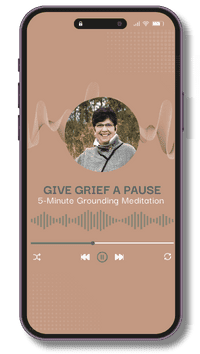Have you ever wished you had one more chance to say final words to someone before they died? One more moment to speak words you’ve carried for too long?
Goodbye can arrive too soon and comes whether we are ready or not. And when it does, we might be left wishing—What if I had said I love you? What if I had asked for forgiveness? What if I had the courage to reach out?
“The bitter sweet tears shed over graves are for words left unsaid and deeds left undone.”
-Harriet Beecher Stowe
Do Final Words Really Matter?
We say final words to be sure the dying know what they mean to us. These words, simple yet profound, carry the weight of our deepest feelings and our most sincere intentions. They have the capacity to mend old wounds, take the edge out of regrets, and remind us that our legacy is love, not silence. Yet all too often we wait, assuming there will be more time to reconnect.
What Holds Us Back?
Guilt. Fear. Shame. The passage of time.
And sometimes, the ache of estrangement itself.
Estrangement is complex, sometimes spanning generations, and is more common in families than you might realize. For many, a decision to intentionally estrange isn’t made lightly. When the choice has been made to create safety and/or to protect your mental, emotional, or physical well-being, death does not erase that boundary. Reconnection may not always be the best choice—even in the face of an impending death.
What Are A Few First Steps?
Reaching out after days, weeks, months, or even years of silence is never easy. Time adds layers—of uncertainty, of distance. The old saying “out of sight, out of mind” can feel painfully true. And often, we find ourselves wondering how the space between us began at all.
You may ask yourself, Is it too late? Will my words even matter now? The self-talk that follows can stir up fear, grief, longing, and guilt—the gift that keeps on giving, the kind that lingers, looping back again and again, and not in a way we’d ever choose.
If you feel called to take a next step, begin gently with self-compassion and an open heart:
- Perhaps you could start with a single message, text, or note by mail, even just a line to say, I’m thinking of you or I remembered something special about you.
- The unsent letter is an effective tool. Write the words you wish to share, whether or not they are ever sent. Their meaning to you matters.
- You could permit yourself to strip it down to the essentials: thank you, I love you, forgive me, or I forgive you, goodbye.
And if reaching out does not feel safe, or if it does not align with the truth of your heart, you still have options. You can claim the power of release through a ritual, through writing, or by speaking into the quiet. Releasing this part of your relationship is not dependent on another’s response—it can be something you create for yourself.
What Legacy Will You Leave?
Final words can matter, as does silence, intention, and presence. Sometimes words are spoken across a bedside, and sometimes they are whispered only within our own hearts. A bridge can still be built—carrying us from pain toward peace, from silence toward release.
So, who is showing up in your heart today?
Because goodbye, spoken in love—even if only privately—cannot wait forever. It reconnects us to self and to others. The time to begin is now.
Love and peace,


